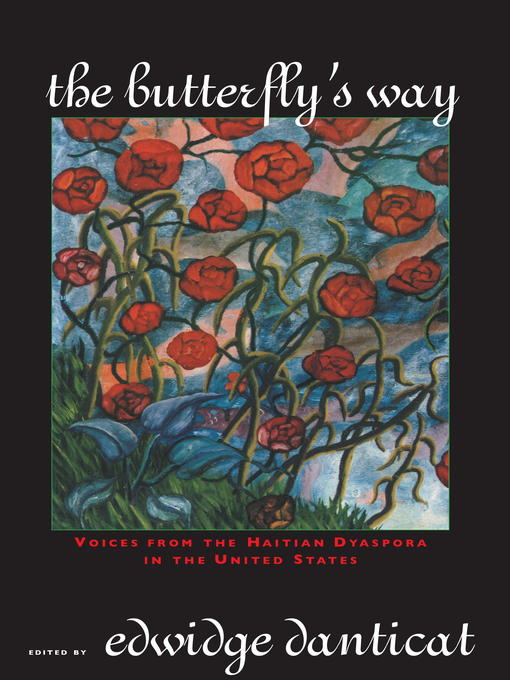
The Butterfly's Way
Voices from the Haitian Dyaspora in the United States
کتاب های مرتبط
- اطلاعات
- نقد و بررسی
- دیدگاه کاربران
نقد و بررسی

July 1, 2003
The experience of Haitian migr s in what novelist Danticat (Krik? Krak!; etc.) calls the "tenth" geographical "department" of Haiti--"the floating homeland, the ideological one, which joined all Haitians living in the dyaspora"--is the theme of this collection of 33 spare and evocative essays and poems. Most of these writers fled political instability as children and describe the dual reality of alienation from yetbelonging to two worlds, forging an identity separate from that of their parents in the new country, while at the same time continuing to wait for stability in the old country. Nik l Payen tells of her experience as a U.S. Justice Department-sponsored interpreter who uses her knowledge of Krey l ("the language whose purpose in life up until now had been to pain and confuse me") as "an asset" to translate for refugees waiting in horrific conditions at Guantanamo Naval Base following the overthrow of President Jean-Bertrand Aristide. When she witnesses the return of some of these Haitians--denied entrance to the U.S.--she likens their journey to the African Middle Passage. In another, Marie-H l ne Laforest, whose lighter skin color and family's wealth made her "white" in Haiti, realizes that she is simply black in America and later forges a third identity in Italy. Francie Latour, a journalist, convinces her American newspaper to send her to Haiti with a noble aim, but ends up "hitting a cultural wall" and being viewed as a "traitor" by her native people. This rich collection of writings will appeal to the growing number of Haitian-Americans and others interested in the question of the migr 's sense of identity.

November 1, 2000
Danticat, author of the award-winning Breath, Eyes, Memory, has brought together numerous poems, essays, stories, and letters by individuals whose Haitian experiences helped shape them. The definition of the "diaspora" given recently by the Haitian Embassy's Gerard Alphonse Ferere is "any dispersal of people to foreign soils." But in Danticat's introduction, we also learn that the "dyaspora" is the "floating homeland, the ideological one, join[ing] all Haitians living in the dyaspora." Poet Marc Christophe leads the selections with a poem on the sensory Haiti he remembers, "the heated voice of peasant men/ who caress the earth/ with their fertile hands/ the supple steps of peasant women/ on top of the dew." In the chapter on migration, we learn about Gary Pierre-Pierre's interracial marriage and the reactions to it. Martine Bury tells a similar story in her essay, "You and Me Against the World." The selections are varied, colorful, and interesting. Recommended for all libraries.--Barbara O'Hara, Free Lib. of Philadelphia
Copyright 2000 Library Journal, LLC Used with permission.

February 15, 2001
Diaspora kindles painful and conflicting emotions, and those living in exile from Haiti carry burdens both archetypal and unique to the legacy of their homeland, the first black republic in the Western Hemisphere. Danticat, the gifted Haitian American author of " The Farming of Bones" (1998), has assembled a potent and piercing collection of essays and poems that articulate the frustrations and sorrows of Haitians who are now outsiders both in Haiti and in their places of refuge. Her eloquent contributors express anger over the negative images conjured by what Joel Dreyfuss calls "the Phrase," the automatic tag line "the poorest nation in the Western Hemisphere," and voice pride in Haiti's spirituality and art. Not that there isn't much to lament, as evident in searing essays by Jean-Robert Cadet, Barbara Sanon, and Marie Ketsia Theodore-Pharel. Haiti is a profoundly complex and alluring place, a neighbor, as Francie Latour observes, "whose history and future are so intertwined" with the U.S. that it must be better understood, and Danticat's revelatory anthology is a giant step in that direction.(Reprinted with permission of Booklist, copyright 2001, American Library Association.)

























دیدگاه کاربران